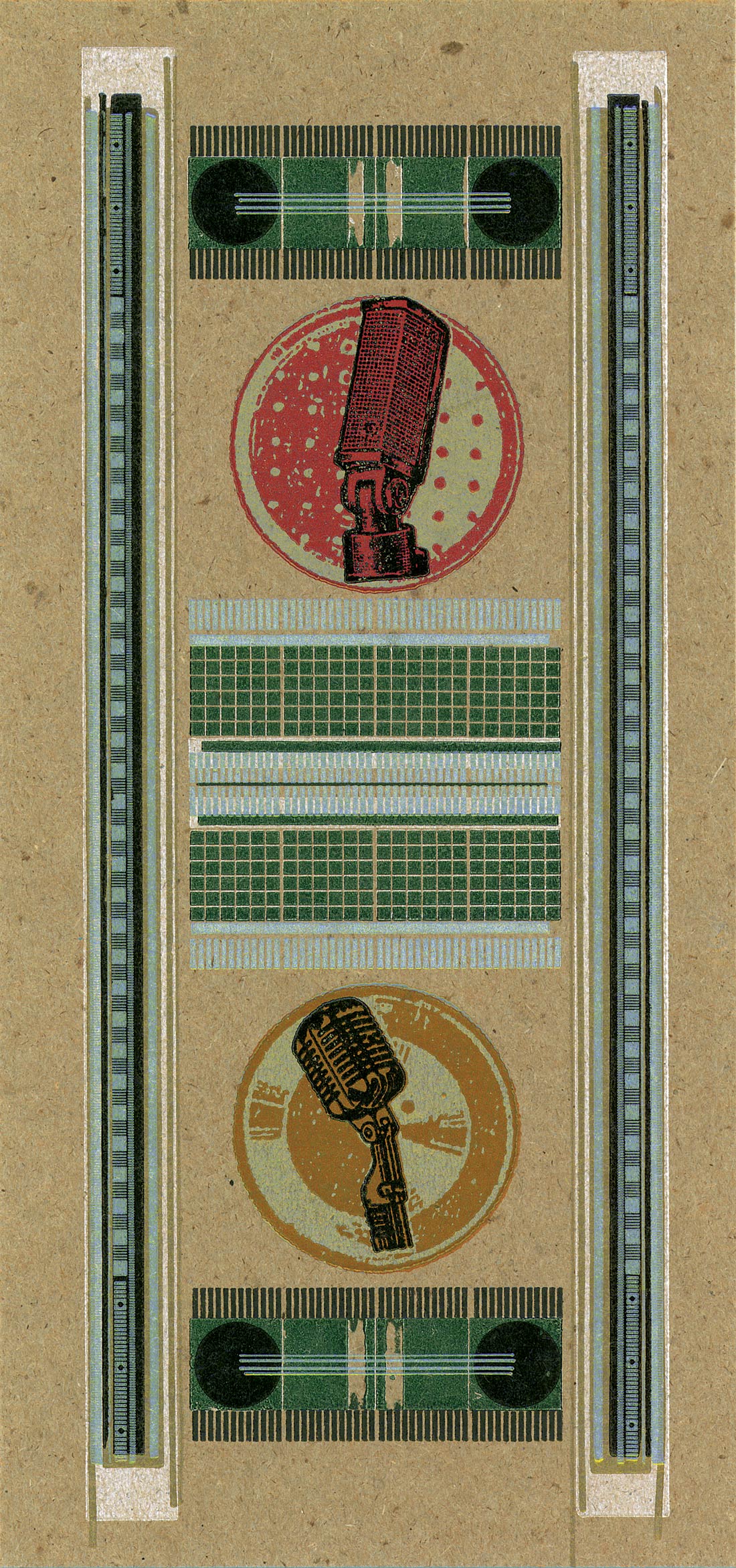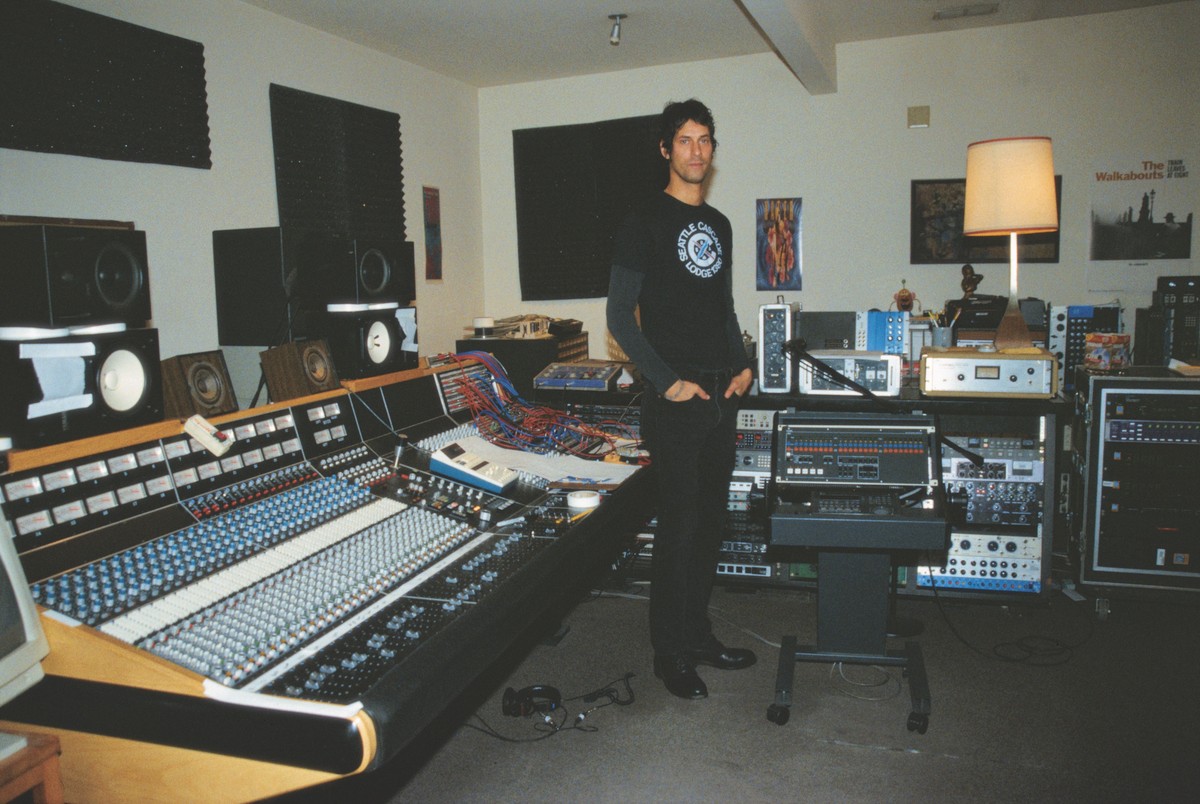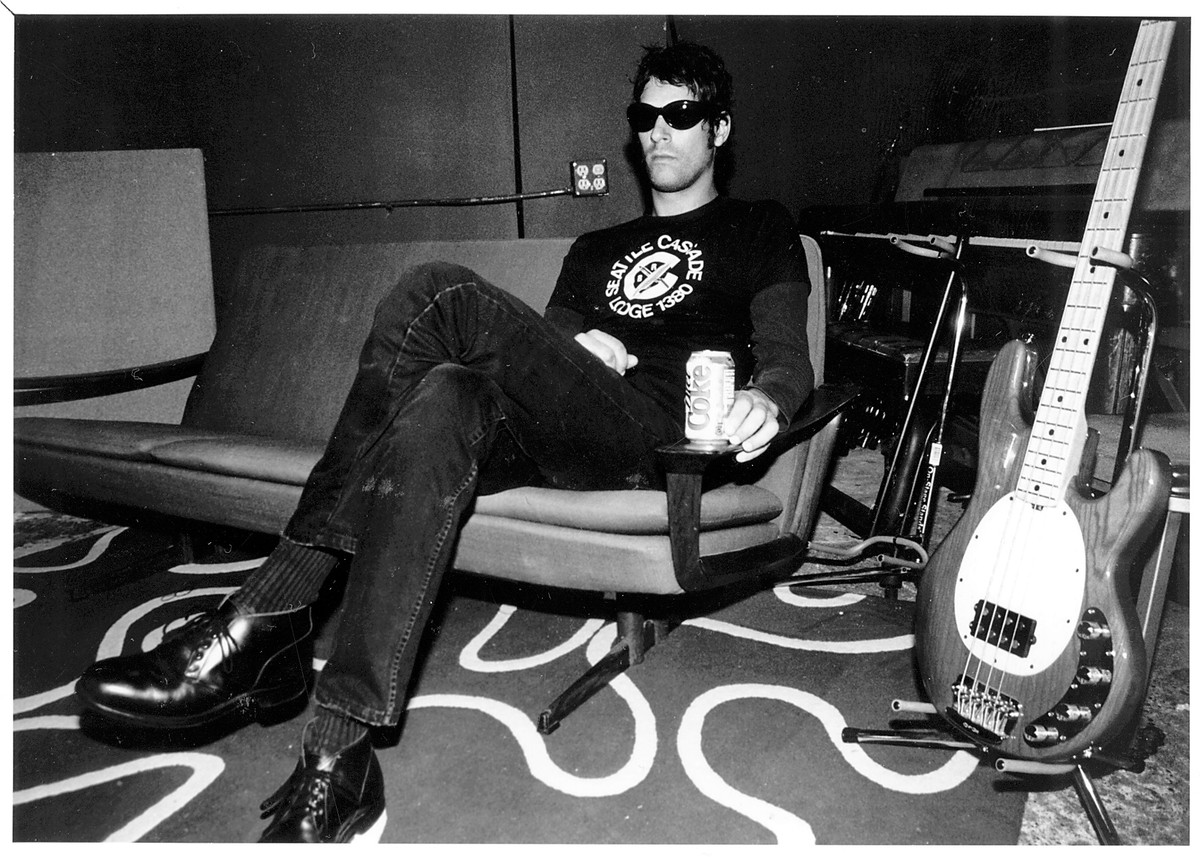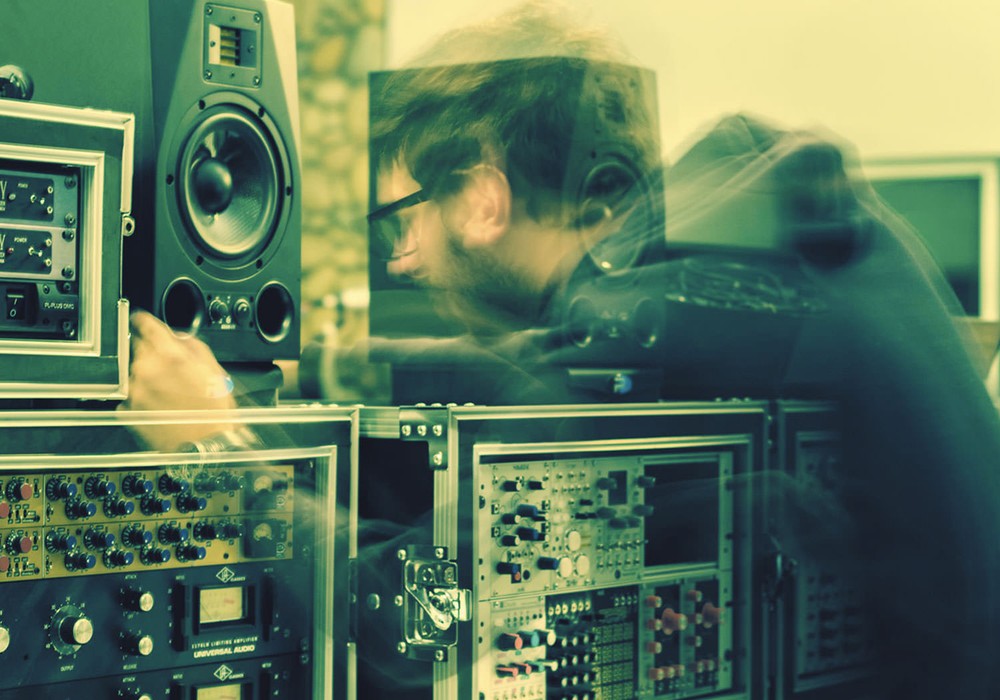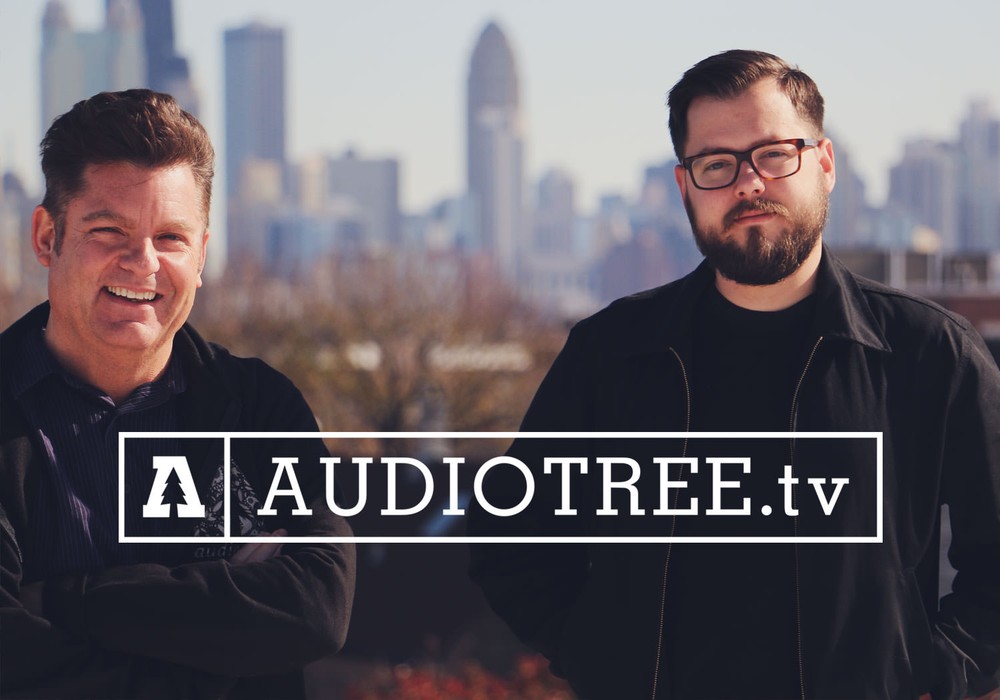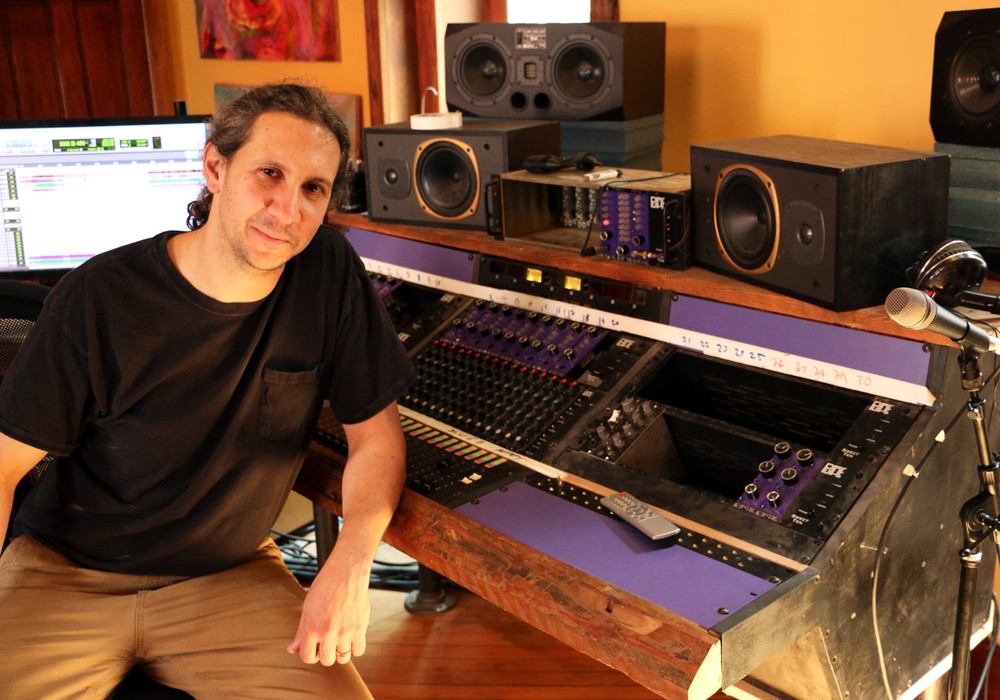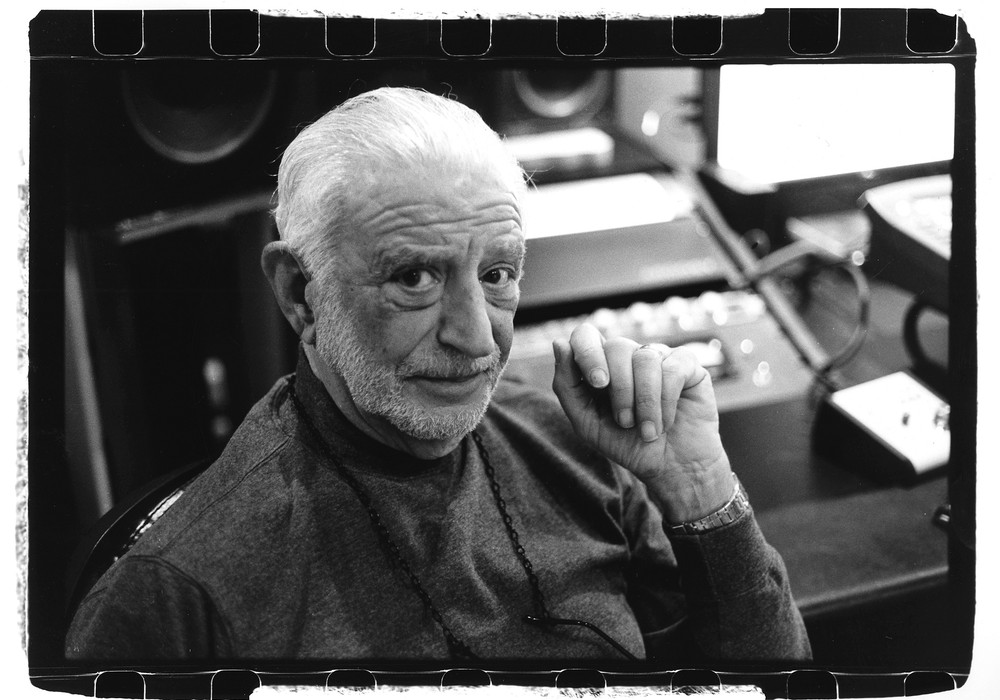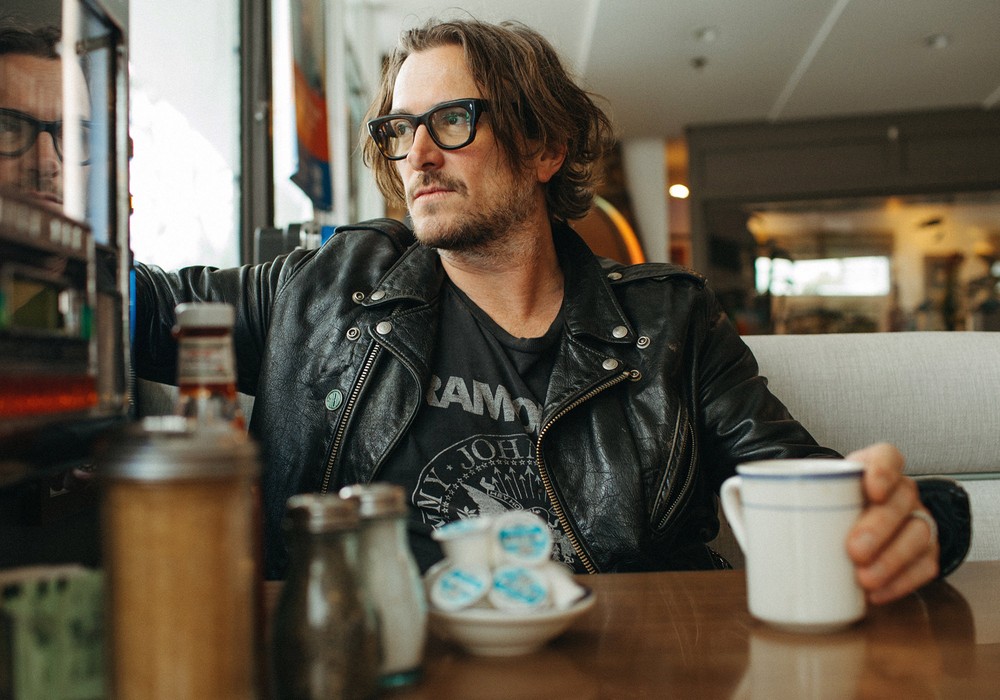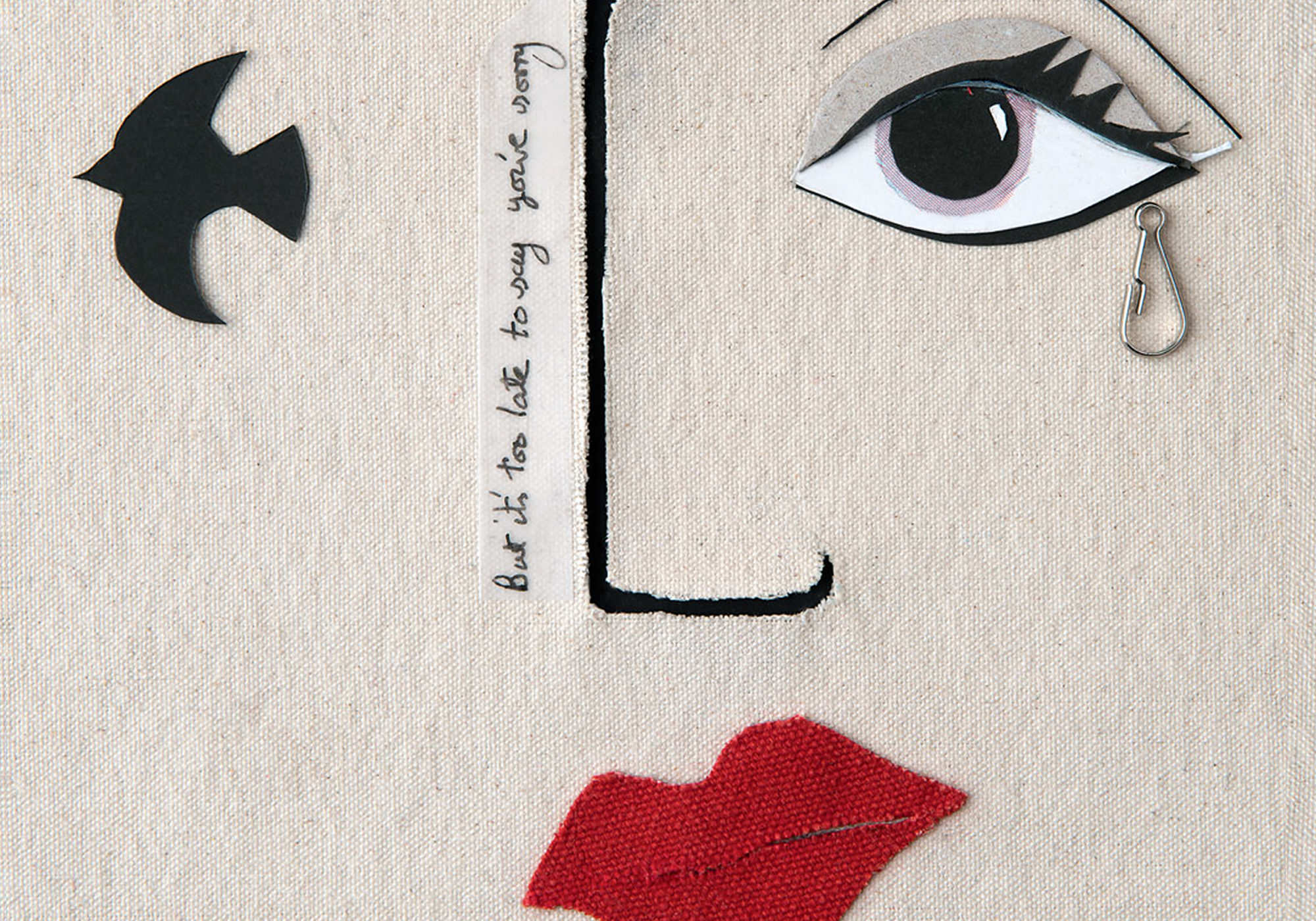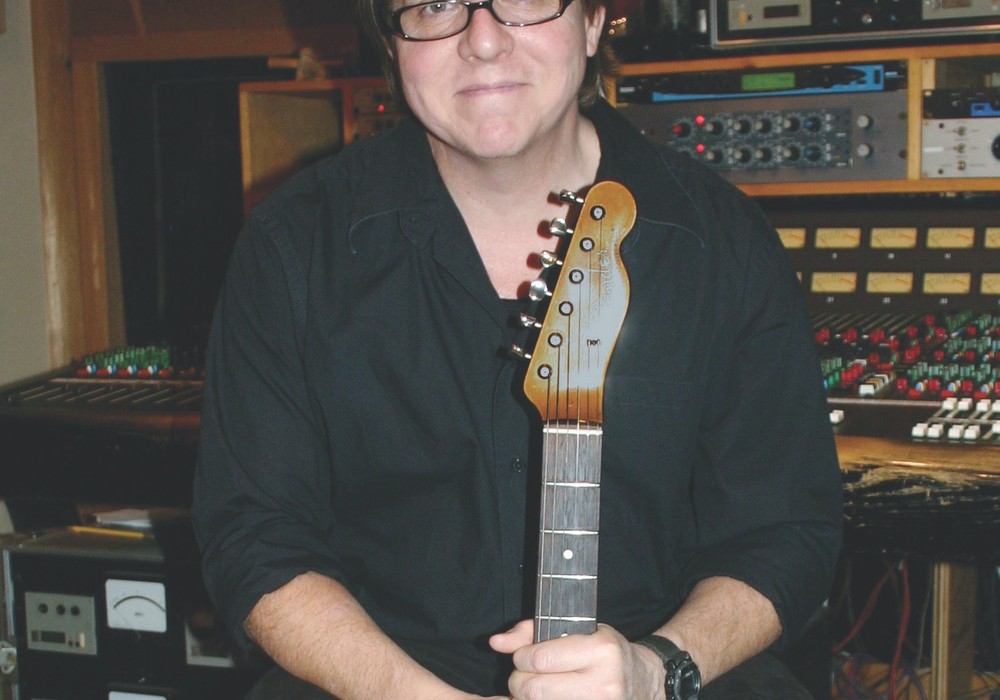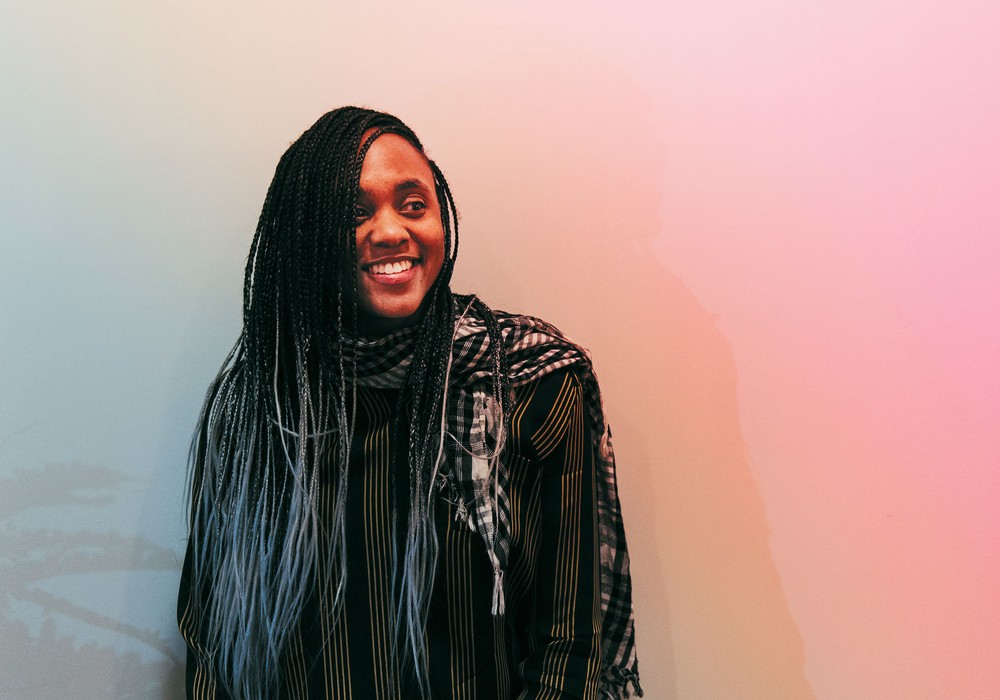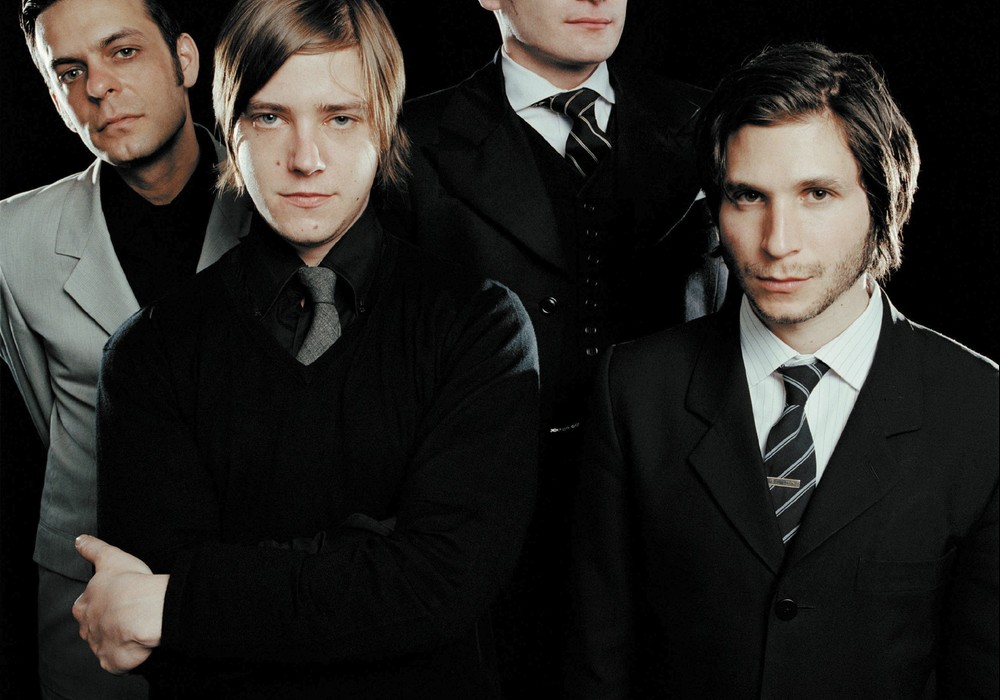Hailing from Bremerton, Washington, Phil Ek grew up as a kid who was into music from the get-go. As a teenager he would travel across the Puget Sound to pick up the latest releases from SST and Sub Pop. Not wanting to stay in Bremerton, Phil moved to Seattle and ended up doing live sound at the now defunct Off Ramp. During this time he was introduced to Jack Endino [Tape Op #13] and became his assistant at Word Of Mouth studio, which is where Nirvana recorded Bleach (when it was called Reciprocal). After assisting Endino to record the likes of Nirvana, Hole, and the Supersuckers, Ek became the guy who ended up doing the demos for every cold call that came into the studio. He then went on to record a host of bands and is best known for his work on the past six Built to Spill recordings. When I spoke with Phil recently, we focused a lot on his work with Doug Martsch, the mastermind behind Built to Spill.
Let's talk about collaboration. What does collaboration mean between you and Doug on the Built to Spill records?
We are both looking out for the same artistic vision. He's obviously the songwriter, the guy with ideas in the back of his mind that he doesn't always know how to make happen sonically. We collaborate on ideas — how to make it sonically what he wants, to pushing him to do that guitar part as good as he can. If he feels like giving up, he knows that I'm there to know that he can do it that much better, either sound or performance.
How did you first start working with Built to Spill?
I started working with Built to Spill after I recorded his bass player's [Brett Nelson] band, Butterfly Train. I didn't really know Doug and he came in the studio, this was at Word of Mouth, and I said, "What are you doing here?" He told me that Brett was the bass player in Built to Spill and they were in Seattle doing shows. He had just got done doing the first Halo Benders record. We just kind of hit it off. We were talking about music and he asked me to do the Built to Spill record. We recorded what became There's Nothing Wrong With Love a month later.
What are the pros of collaboration with Built to Spill?
There's a level of comfort and relaxation. But, I've never felt that doing records with Doug was mundane and by the book. We always try to make it different — treat the songs, treat the album differently. He knows that, and I know that we're both on the same page looking for that excitement in the music. It's fun. He started off as a guy I just liked artistically, but he's turned into a really good friend.
What sort of unspoken communication has developed between you guys over the years?
There's moments when I know he's going to like something, or not going to like something. He'll be out there doing a guitar track and I don't really necessarily have to ask him if he thinks it's okay. I know he thinks it's good, or I'll know he's definitely going to want to do it again. Also, we listen back to something and know where to punch in, because it's not as hot as it was at some other point in the song. There's definitely that vibe of knowing each other's likes and dislikes.
What's the difference between the first album you did with Built to Spill, There's Nothing Wrong with Love, and the most recent album, Ancient Melodies of the Future?
Time. The time that we had to do it, that's one big difference, obviously. I think we did basic tracks for Nothing Wrong... in two days, which really isn't all that different from Ancient Melodies... We did those basics in three. We also get to go to better studios now, with much better equipment.
Did you record There's Nothing Wrong with Love at Word of Mouth Studio?
Yeah, it was called John and Stu's by then.
What gear did you have?
It think we had a 2" 16-track Ampex MM1200. We had a 12 channel API and a Mackie 16 channel board put together. Luckily we didn't mix it that way [laughs]. We mixed it once at Avast! [in Seattle] and then listened to it and thought there could be more stuff done to it overdub-wise. We went back and did some more overdubs and mixed it at John and Stu's again on a Quad Eight Ventura board they had just gotten in there.
Where was the last album tracked?
It was tracked at Bear Creek in Woodinville, Washington. They've got a Trident board and a Studer deck. We did overdubs at Avast!, they have an API and a Studer. We mixed it a place called the Factory up in Vancouver, B.C. They had, I believe, an Otari, and a Neve.
When you're recording Doug's guitars, what's he particular about?
He's more a one guitar guy than he is an amp guy. He brings in his stuff, which is pretty much old Fender stuff. He has a Tremolux and a Bassman. Then we borrow amps from the other guitar player, Jim [Roth]. He has endless amounts of amps — from Marshalls, to AC-30s. Doug likes the overdriven Neil Young-tone more than a distortion box or a Marshall tone. But it's more like we just plug in and say, "That sounds cool," and see if it works. I mic it up. He really doesn't have much to do with micing it. I usually throw up three or four mics, sometimes more than that. We just see what sounds cool.
Did you record the live Built to Spill album?
I didn't record it, I mixed it all.
Did you ever do live sound for them?
Oh yeah, I did a whole U.S. and European tour.
There are obvious differences between playing live and recording. What translates over from your studio engineering skills to your live sound engineering skills? They seem to be two totally different worlds to me.
They are totally two different worlds! I'm not a huge fan of live sound, only because it's less creative. Not less creative, it's just a different kind of creativity. You're not sculpting something, you're just making sure that everything is just sonically present and loud, but not hurtful.
What other projects besides Built to Spill have you been working on lately?
Lots of Seattle bands: Poseur, Aveo, my roommate's band, Automaton. I was in New York for quite a while recording this band called Les Savy Fav. I mixed some Sub Pop stuff, Love as Laughter, recorded Unwound... did some J. Mascis stuff.
You're mostly a freelance engineer?
Exclusively.
Do you have any studios you find yourself being affiliated with more than others?
Yeah. I was affiliated with Word of Mouth/John and Stu's and Avast! because Stuart Hallerman has the best equipment, definitely the most bang-for-the- buck in Seattle. And also, I just really like him. I still bring stuff to Avast! all the time.
How do you balance engineering and producing?
That's a good question. I guess initially when you first start working with a band you're a producer. You want to relate to the band, you want to relate to their artistic intent. After going through the process of listening to the band practicing, or listening to their 4-tracks, you have sonic ideas that are a feel element. In the back of your mind you're thinking, that would be really great if the drums were dead and close on this particular song, and just wide open and huge on some other song. You become an engineer when you get going, because you're technically trying to get that sound and please the producer side of you. This is either really rewarding or endlessly frustrating. Sometimes you just hear it in the back of your head, and you just haven't got there yet. Or it instantly becomes the way you want it to be and you think, that's what I want to hear! Once the sound is great, you're thinking about performance and feel. It's kind of a schizophrenic way to be. Sometimes I would love not to engineer, to be able to sit back and listen more. But, I enjoy doing both things.
What's a typical Phil Ek session like?
I don't know. I think that would be something you'd have to ask a band member.
Do you have a method?
Yeah, I guess. It kind of goes in your drums, bass, guitar, vocals style scenario. But, it's more whatever's happening at the time, what's making sense. If the feel's great and the guitars, vocals, or whatever are excellent, then we'll just keep going with that.
Do you ever feel like you're stuck in the indie rock ghetto?
Yeah, sometimes.
What would you like to branch out and do?
Indie rock — meaning only time, money, and the ability to work on a project for months and months doesn't happen. Sometimes it's endlessly rewarding really going through a project focusing on the minutest details. I wouldn't necessarily like to be doing Gregorian Chant records, but sometimes I wish these bands I was working with did have more time to spend. I'm using indie to mean more of a small label thing than a musical style.
I was thinking of it more in terms of the style.
Yeah, I would love to do a hip-hop record. I'd love to do a full on classic country record. These are things I like, but just haven't had a chance to do. By working with bands like Built to Spill, and all the work I did for Up Records, I can understand why I don't get chosen to do those kinds of things. I don't feel like I'm in a rut, I love the bands I work with. By being freelance and not being associated with one studio, I get to work with bands I like.
What's in your favorite studio?
My favorite studios definitely have some Neve modules, 1081s, 1073s, 1063s. Give me a couple kick-ass Neumann U-67s. Standard Urei 1176s. Crappy digital reverbs are pretty cool to me, like PCM-60s.
Everybody loves the PCM-60.
It's a highly sought after unit. They're great, they're easy. Anything that's got a couple of buttons and I can get what I want quick... great, I'm all for it. I like newer things too, like the Distressor. It's new, but on the same old tip of blowing stuff up.
What's the gear you can't live without?
Probably the gear that every studio has to have. [laughs] Nothing beats a kick-ass 57 on a guitar or on snare drum. I always use the Teletronix LA-2A on something, generally on vocals. I really like SSL stereo compressors. I'm big fan of stereo compression on the mix. A nice Massenburg stereo parametric EQ after the compressors is great. It just seems to liven things up. And I do really like the sound of squashed songs in rock.
Yeah, that's a very British thing. I love that sound.
Very British! Just take the stereo mix and squash the hell out of the whole thing. Led Zeppelin, the Beatles — it's a stylistic thing. I wouldn't do it on everybody, but I do thoroughly enjoy it.
Do you ever venture into the digital realm.
Yeah. I see the beauty in it.
What's that?
The ability to manipulate. I've never done a full digital record. I've slaved them to 24 [tracks] and done analog and digital for more tracks, for editing, for weird plug-ins, like using Auto Tuner poorly to make it sound like a bad vocoder. I've never done a full record in Pro Tools, and I don't know how much I would like that. I feel that it can be too easy to manipulate. I do enjoy the organic quality of music, in that it speeds up and slows down every now and again, or what ever it is. There are definitely huge benefits to have the ability to throw it into digital and fix it up quick.
Pro Tools is just a tool. It's all in how you use it, look at Massive Attack.
Yeah, the new Modest Mouse album was all done in Pro Tools. It still sounds like them.
Going back to your recording again, what's some of the quirky weird shit you like to use?
I had an old Magnacorder, which was a 2-track from the '50s that was given to me by a friend of mine. It had preamps that would sometimes start off sounding surprisingly clean and then they turned out to be trashy and bizarre. I also had this Altec 5 channel mixer that I used to dump stuff into and combine mixes. It just sounded ridiculous. I also like toy microphones. I had John Atkins from 764- Hero sing through this big long reverb spring tube. It was a toy, it was goofy as hell, but it sounded rad! What makes you laugh at the moment can be a real damn cool thing later on.
I want to finish up here with one thing. Tell me about facing north.
I was talking to some magazine in L.A., Four Trackers R Us, or something, I don't know what the hell it was called. They asked me how I got the vocal sounds on There's Nothing Wrong With Love. I told them that I had the singer face north into the microphone. He was kind of dumbfounded and I went on with this bullshit story [laughs] about how we're closer to the North Pole and how the magnetic pull of the microphone pulls the sound into the microphone more easily, and how this creates a clearer, fuller sound. He bought it for the most part, but then he laughed at me and went on to the next question.
